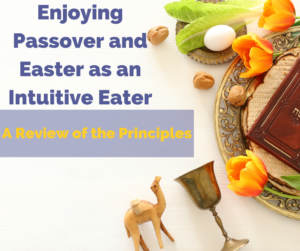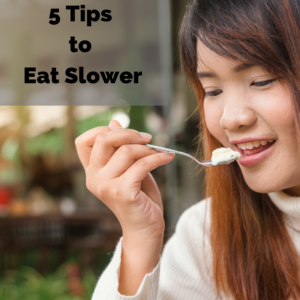It’s Okay if You’re Not Ready to Give Up Dieting
 Not everybody is ready to hear that “diets don’t work”. For years, you’ve been trying all the different diets that hit the market in hopes of losing weight and keeping it off. But each time, you gain back most, if not all, of the weight you lost, and you are back at square one.
Not everybody is ready to hear that “diets don’t work”. For years, you’ve been trying all the different diets that hit the market in hopes of losing weight and keeping it off. But each time, you gain back most, if not all, of the weight you lost, and you are back at square one.
The Dieter’s Dilemma
The Dieter’s Dilemma starts with the desire to be thin. This desire leads to the start of your diet. Eventually, you experience cravings for foods you’ve been restricting. This leads to having a “loss of control” and “overeating”, maybe even binge eating on these foods. You regain the weight you lost, with a side dish of guilt and shame.
But then, the desire to be thin becomes strong again, and you start your next diet.
The cycle continues, until you acknowledge that diets don’t work, and there must be a better way to exist. There is.
Reject the Diet Mentality
The first step to no longer dieting is to reject the diet mentality. That means learning to acknowledge when the Food Police is shouting food rules at you, as well as barbs, criticisms, and judgement about you “not following the rules”.
This step will take time. Think about it. You’ve been following diet food rules for years. You’ve been listening to others tell you when to eat, how much to eat and what to eat. These rules have created cognitive distortions and it takes practice to learn to reframe these thoughts into more rational thoughts.
Tip: Every time you hear a diet thought pop up, pause and call it out. Challenge that thought right then and there!! Within time, you will see that the Food Police is losing it’s hold over you.
Intuitive Eating
If you consider the words Intuitive Eating, you can come to understand that you have the natural inborn instinct to know when you are hungry and full, and what you truly want to eat in that moment. You are born with that instinct.
According to the creators of Intuitive Eating, Evelyn Tribole and Elyse Resch, Intuitive Eating is a “self-care eating framework, which integrates instinct, emotion, and rational thought.”
There are 10 principles of Intuitive Eating which work in 2 main ways:
- They help you cultivate attunement to the physical sensations in your body so you can meet both your biological and psychological needs. These are sensations that you have likely not been paying attention to in regard to eating, because you were focused on following rules external to your body.
- They help remove the obstacles that may be present that interfere with you cultivating this attunement. These obstacles generally come from your mind and the beliefs and thoughts you have around food, eating and your body.
I express to my clients that it’s very important to begin the process of giving up dieting by working on mindset first, rather than trying to attune to the inner signals. When you still have a diet mindset running in the back of your mind, then it’s much harder to learn to eat when hungry and stop when full because the rules are still running the show.
But What About Weight?
Great question!
I know that you are unhappy with your current body (weight). That’s why you’ve been on and off multiple diets over your lifetime. But if you continue to pursue intentional weight loss, then you are continuing to diet. It’s not possible to learn to reject the diet mentality while also trying to lose weight.
Will you lose weight? The honest answer is, I don’t know. Only your body knows what it will do when you stop restricting and allow your body to land where it is genetically pre-determined to land.
Are you able to put the desire to change your body on the side for a little while? To acknowledge that the desire for weight loss is there, but you won’t actively pursue it?
If you are able to do that, then you are ready for the Intuitive Eating journey. If you are not ready to put weight loss on the sideline, then you’re not ready to begin your Intuitive Eating journey.
And that is okay! It may take you some time to come around to it. And when you do, please know that I am here for you.
To get a taste of what it’s like to break free of diets, pop your name and email in the boxes below to a 3 day experience like no other!







